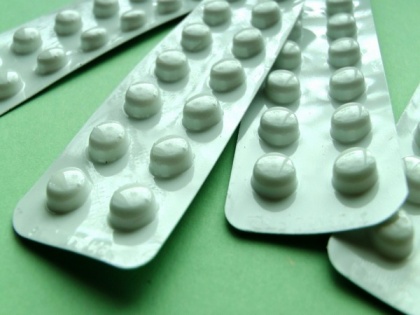US left with 63 million doses of anti-malarial drug after FDA revoked its emergency use
By ANI | Published: June 19, 2020 04:22 AM2020-06-19T04:22:09+5:302020-06-19T04:35:03+5:30
The US federal government is now left with 63 million doses of hydroxychloroquine sulfate (HCQ) in its stockpile after the Food and Drug Administration (FDA) earlier this week, revoked the permission for use of anti-malarial drug in treating COVID-19 infection.

US left with 63 million doses of anti-malarial drug after FDA revoked its emergency use
The US federal government is now left with 63 million doses of hydroxychloroquine sulfate (HCQ) in its stockpile after the Food and Drug Administration (FDA) earlier this week, revoked the permission for use of anti-malarial drug in treating COVID-19 infection.
In addition to HCQ, the FDA on Monday also revoked its authorisation of the use of chloroquine phosphate (CQ), which can also treat and prevent malaria, for COVID-19 treatment, Sputnik reported.
"[The] FDA has determined that CQ and HCQ are unlikely to be effective in treating COVID-19 for the authorized uses in the EUA [Emergency Use Authorization]. Additionally, in light of ongoing serious cardiac adverse events and other serious side effects, the known and potential benefits of CQ and HCQ no longer outweigh the known and potential risks for the authorized use. This warrants revocation of the EUA for HCQ and CQ for the treatment of COVID-19," the agency wrote in a release on Monday.
The FDA's EUA applied only to hospitalized COVID-19 patients and to drugs in the Strategic National Stockpile, so individual doctors are still able to prescribe HCQ off-label, since it has been approved for other uses.
The US government began stockpiling HCQ in late March, after the FDA authorized hospitals to use the drug to treat patients who had contracted the novel coronavirus. The drug has also been touted by US President Donald Trump, who took it himself to prevent COVID-19 infection despite the FDA's warnings that the drug can cause heart problems.
Some experts have expressed regret that so much emphasis was placed on HCQ for COVID-19 treatment.
"Nationally, we put a great emphasis on one drug, hydroxychloroquine," said David Holtgrave, who was part of a study that looked at the drug as a potential treatment for COVID-19, the New York Daily News reported.
"I worry that history will judge this as having over-invested in one treatment pathway as opposed to looking more broadly at a larger number of treatment candidates," Holtgrave added.
In a statement to CNN, Carol Danko, a US Department of Health and Human Services (HHS) spokesperson, revealed that the HHS is now collaborating with compes who donated the drugs to "determine the available options for the product."
Around 31 million doses were distributed from the stockpile before the FDA revoked its authorization Monday. Along with the 63 million HCQ doses, the stockpile currently contains about 2 million doses of CQ, Danko noted.
The FDA is not the only regulatory body to raise a red flag regarding HCQ.
In a statement on Wednesday, the World Health Orgzation (WHO) said that recent findings show that the drug does not reduce mortality of "hospitalized COVID-19 patients" and that it will thus halt all studies regarding the drug.
So far, two drugs, namely remdesivir and dexamethasone, have shown promising trial results in helping hospitalized COVID-19 patients recover faster and preventing death from the respiratory disease.
The United States is the worst hit country globally by the novel coronavirus. Since the virus emerged in China late last year and spread worldwide, there have been more than 2.23 million confirmed cases and over 117,000 deaths in America, according to latest figures compiled by US-based Johns Hopkins University.
( With inputs from ANI )
Open in app